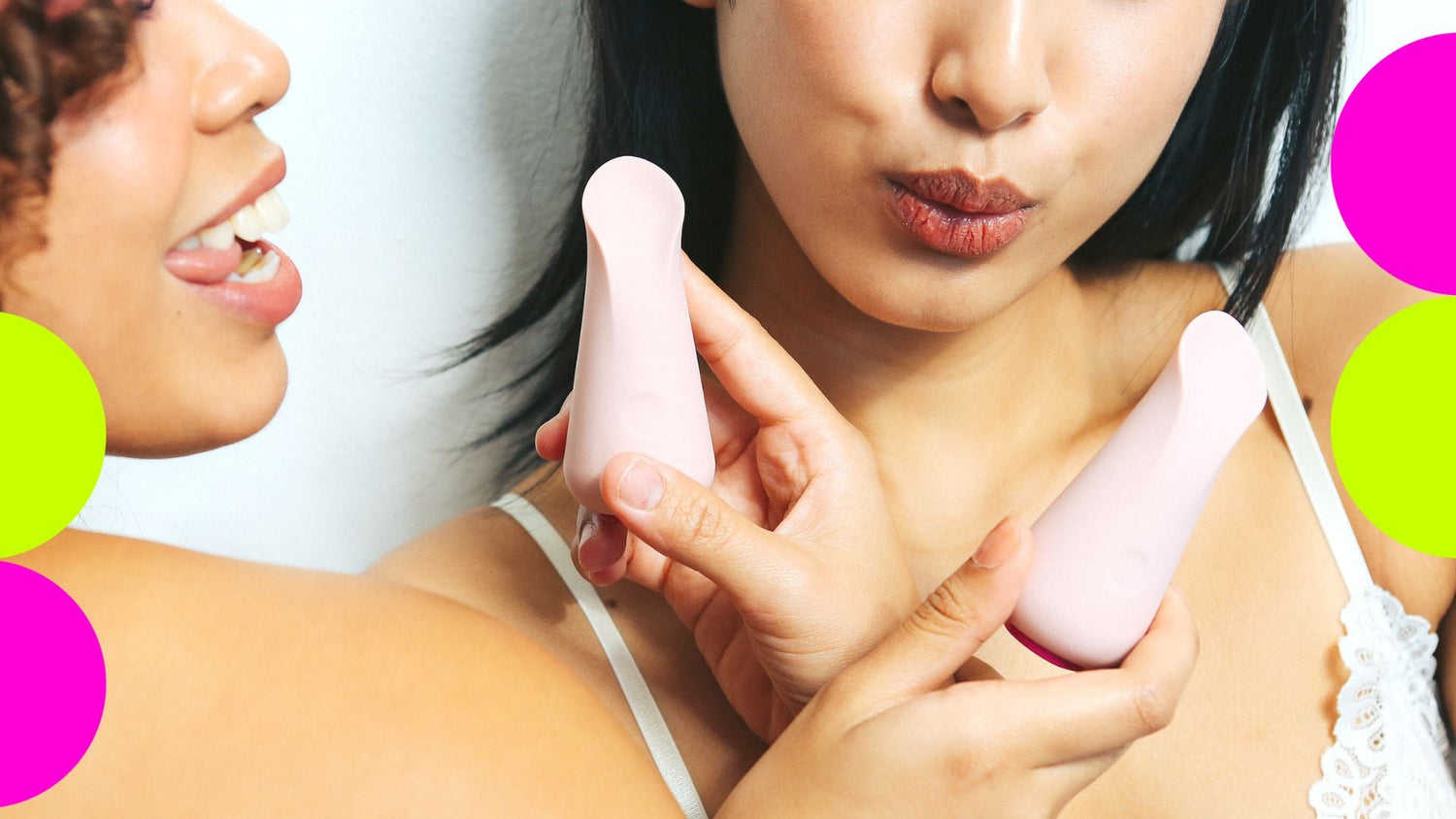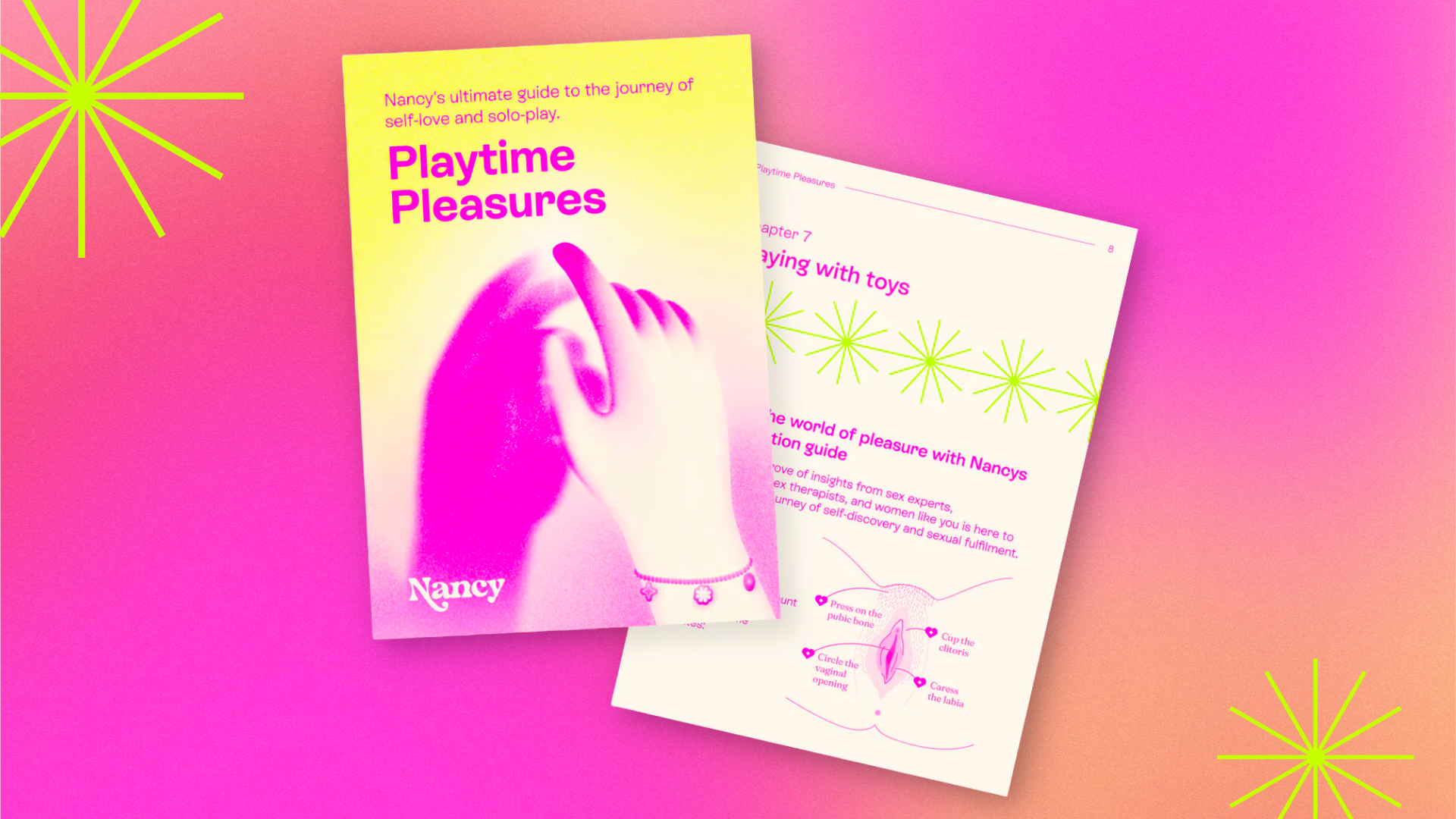As we continue to break down barriers and taboos around female sexuality and pleasure, one topic often surfaces: vibrators. Their variations, forms, and abilities to deliver different types of pleasure make them the stars of many people's intimate lives. Yet, amidst the sparkle of satisfaction, a persistent concern shadows their use: Can these pleasure-inducing tools actually cause desensitisation, especially to the nerve-dense clitoris? A fear that, while thriving in whispers and hearsay, could impact how we approach and understand our bodies and pleasure.
In this article, we'll do some myth-busting. We'll delve into the science behind vibrators and their interaction with our bodies. We'll debunk the notion that vibrators cause long-term desensitisation and provide some practical advice on what to do if you feel your body becoming a little too accustomed to your favourite device. Remember, knowledge is power, especially when it comes to understanding our bodies and embracing our sensual sides.
Let's take a deep dive and explore what vibrators actually do to your body.
The Science of Sensation: How Vibrators Interact with Your Body
First off, it's important to understand how vibrators work and interact with our bodies on a physiological level. Vibrators, as the name implies, work by creating a series of rapid, concentrated vibrations that stimulate the nerve endings in the clitoris or other erogenous zones.
The clitoris is a powerhouse of pleasure, boasting approximately 8,000 nerve endings. These nerve endings send signals to the brain, which interprets them as pleasurable sensations. Vibrators can stimulate these nerve endings much more intensively and consistently than other forms of touch, leading to heightened pleasure and often more intense orgasms.
However, the persistent myth about vibrators causing desensitisation likely stems from a misunderstanding of how our bodies respond to intense, repeated stimulation.
Debunking the Myth: Vibrators and Desensitisation
So, do vibrators actually desensitise the clitoris? The short answer: No, not permanently. In fact, the Journal of Sexual Medicine found that 71% of women who use vibrators don’t experience any side effects.
Our bodies are quite remarkable and adapt to different stimuli. If you use your vibrator for an extended period, you might notice a temporary numbing or less sensitivity immediately after. 16% of surveyed women experienced this for a day. This is called "temporary desensitisation" or "sensory adaptation," and it's not unique to vibrator use. It's the same phenomenon you experience when you step into a brightly lit room - initially, the light may seem blindingly bright, but after a while, your eyes adjust and it appears normal.
So, while you might experience temporary desensitisation after using a vibrator, this should disappear quickly and does not mean that you're causing any long-term damage or desensitisation to your clitoris.
The Road to Recovery: What to Do If You Feel Less Sensitivity on Your Clitoris?
So, you've been enjoying your vibrator and suddenly you feel a little less sensation than before. Before panic ensues, remember this: the human body is incredibly adaptable and resilient, especially when it comes to sensory input.
Here are some steps to take if you feel like your favourite toy is making you less sensitive:
- Tune Into Your Body: Pay close attention to how your body responds during and after vibrator use. If there's discomfort or prolonged numbness, take it as a sign to consult a healthcare professional.
- Switch Up Your Techniques: Experiment with different stimulation methods. Aside from your clitoris, your body has several other erogenous zones waiting to be discovered. Alternate between different types of touch, pressures, and even vibrators.
- Use Lubrication: Dry friction can lead to temporary numbness. Use a water-based lubricant to reduce friction and keep your toy in tip-top shape. Lubricants can also provide a more natural, comfortable feeling, making your intimate moments more enjoyable!
- Use a Vibrator with a Lower Speed & Intensity: Choose one with adjustable speed and intensity settings, allowing you better control over your stimulation. Our Uno personal massager is a beginner-friendly choice, designed with gentle curves and various speed settings to cater to your unique body and preferences.
- Relish the Experience: Self-pleasure isn't just about reaching orgasm; it's about the journey of exploration and discovery. Embrace every moment, and remember, there's no 'right' way to achieve pleasure.
Vibrators are an excellent tool for self-pleasure and exploration, and when used wisely, they don't pose a risk of desensitising your clitoris. By debunking this myth, we hope to empower women to confidently embrace their sexuality and the pleasure they deserve. After all, your pleasure is worth it!







 Add $12.00 to get Free Gift
Add $12.00 to get Free Gift



